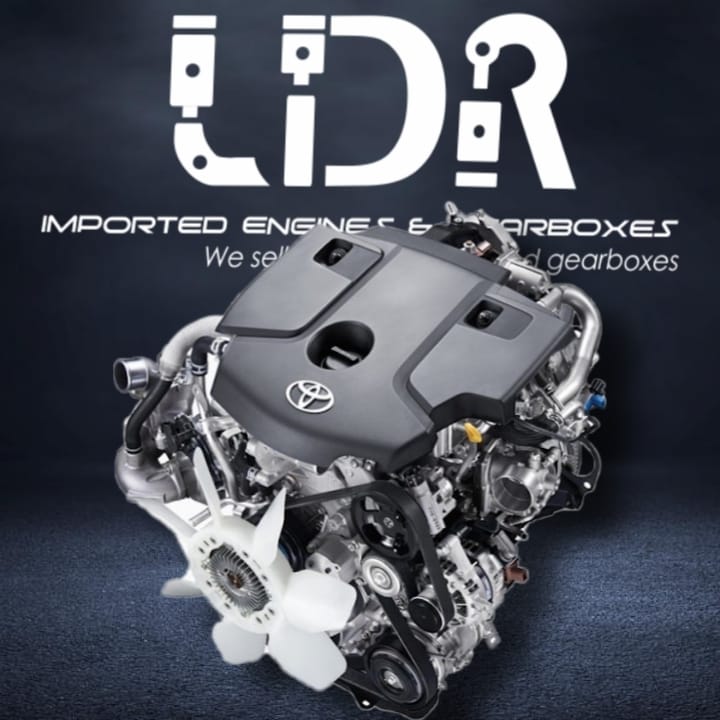Return when driving: Toyota Tazz Engine for Sale, Finest Offers Await
Return when driving: Toyota Tazz Engine for Sale, Finest Offers Await
Blog Article
Engine Acquiring Expert Tips on Selecting the Right Engine for Your Particular Demands
Selecting the right engine for your particular requirements includes a complicated interaction of variables that exceed mere horse power numbers. From power result to sustain performance, the decision-making procedure can be discouraging. Understanding the subtleties of engine types, dimensions, and their compatibility with your car is crucial. Nevertheless, there are skilled suggestions that can aid browse this surface with confidence. By delving right into the intricacies of power versus performance, examining fuel ratings, and budgeting for lasting prices, one can genuinely enhance their engine selection.
Power Vs. Performance: Discovering the Equilibrium
When selecting an engine, it is vital to strike an equilibrium between power and efficiency to fulfill your details requirements properly. Power describes the engine's capacity to create power for propulsion, establishing elements like velocity, towing capacity, and total efficiency (Toyota Tazz Engine For Sale). On the other hand, performance associates to how well the engine makes use of fuel to generate power, influencing elements such as fuel economic climate and ecological friendliness
Accomplishing the right equilibrium between power and effectiveness is necessary because an engine that is too effective might take in excessive gas, bring about higher operating expense and unneeded stress on the environment. Alternatively, an engine that prioritizes performance over power may cause slow efficiency, particularly in requiring situations like pulling hefty lots or driving uphill.
To make an educated decision, think about aspects such as your regular driving problems, the desired use of the automobile, and your individual choices. By evaluating your priorities and needs, you can pick an engine that strikes the perfect balance in between power and performance, guaranteeing ideal efficiency while minimizing environmental effect and operating expense.
Comprehending Engine Size and Type

Common engine kinds consist of inline engines, V engines, and rotating engines, each with its special advantages and drawbacks. Understanding the interplay in between engine size and type is essential in picking an engine that lines up with your particular needs and top priorities, whether it be power, performance, or a balance of both.
Consider Your Automobile's Demands
If you are looking for an engine for a sturdy truck that will be utilized for towing, you will certainly require a powerful engine with high torque abilities. On the other hand, if you are selecting an engine for a small cars and truck largely utilized for city travelling, gas efficiency might be an extra crucial variable to consider.

Examining Gas Effectiveness Scores
Evaluating fuel efficiency scores is a crucial facet of picking the appropriate engine for your lorry, making certain expense savings and environmental sustainability. Gas performance scores, usually determined in miles per gallon (MPG) for gasoline engines or kilowatt-hours per 100 miles (kWh/100 miles) for electrical engines, suggest how much a car can travel on a details quantity of fuel or electricity. Greater MPG or reduced kWh/100 miles worths represent more reliable engines, equating to reduced gas prices and lower carbon exhausts.
Furthermore, contrast different engine choices within the very same car course to identify the most cost-effective selection. Aspects such as engine size, weight, the rules of aerodynamics, and hybrid or electrical capabilities can all influence gas performance.
Budgeting for Long-Term Costs
Tactically preparing for long-term costs is necessary when choosing an engine, guaranteeing financial sustainability over the lorry's life expectancy. While the initial acquisition cost of an engine is a considerable factor, it is important to consider the lasting prices connected with maintenance, repairs, and gas usage.
In addition, investigating the availability and expense of replacement components for the picked engine is crucial in budget preparation. Engines with economical and conveniently available components can substantially impact lasting maintenance expenditures. Furthermore, considering the engine's durability and expected life expectancy can help prevent unanticipated replacement expenses in the future. By carefully image source budgeting for these lasting costs and factoring them right into the decision-making process, individuals can pick an engine that not only satisfies their instant demands however also stays cost-effective throughout its lifespan.
Conclusion
To conclude, selecting the right engine for your particular requirements needs balancing power and efficiency, recognizing engine dimension and Check This Out type, considering your car's requirements, assessing gas performance ratings, and budgeting for long-lasting prices. By carefully considering these elements, you can make certain that you pick an engine that meets your demands and gives optimal efficiency for your lorry.
To better fine-tune the selection procedure of an engine that strikes the optimum equilibrium between power and efficiency, it is important to delve into the intricacies of recognizing engine dimension and kind. Engine size refers to the complete volume of air and gas that can be pushed via the engine cyndrical tubes. Usual engine kinds include inline engines, V engines, and rotating engines, each with its unique advantages and drawbacks. Recognizing the interplay between engine size and type is essential in choosing an engine that lines up with your details needs and top priorities, whether it be power, efficiency, or an equilibrium of both.
Fuel performance rankings, commonly this contact form determined in miles per gallon (MPG) for gasoline engines or kilowatt-hours per 100 miles (kWh/100 miles) for electric engines, indicate how much a vehicle can travel on a particular amount of fuel or electrical power.
Report this page